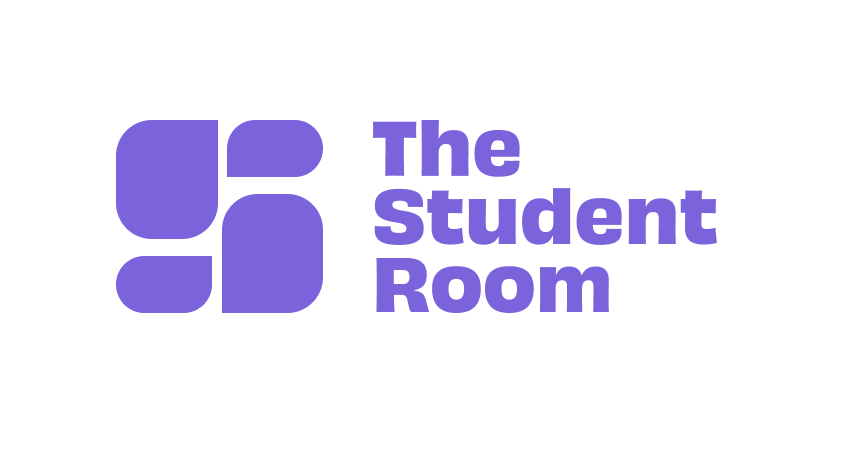An increasing number of students are seeing the benefits of apprenticeships. They understand that they can develop employable skills, avoid student debt and get a foot in the door with prospective employers.
To encourage more employers to hire apprentices, the government has extended the apprenticeships bonus scheme until March 2021. Under the scheme, there’s a £2,000 incentive for hiring apprentices aged 16-24, and £1,500 for hiring apprentices who are 25 or older. It’s an attractive offer, but where can you find suitable candidates to apply?
92% of The Student Room’s 8 million monthly users are in the ideal age bracket for this scheme (70% are aged 16-24 and 22% are aged 25+)1. Here’s what we know about your target audience and their views on apprenticeships:
What do students think about apprenticeships?

Young people are influenced by their close connections. Many teachers, parents, and employers still believe that university is the only viable route for intelligent young people. So, are all the smart kids climbing out of your talent pool? Not necessarily. University is not the right path for everyone. If it was, we wouldn’t have attracted 28,341 highly skilled students per month to our apprenticeships content last year2.
We find students are very capable of thinking and choosing for themselves, as long as they understand what their options are. Compared with university, the apprenticeship route often gets less air time in schools, so students frequently visit our platform to find the answers they need:
Perspectives are changing over time
Tackling the confusion and negative perspectives surrounding apprenticeships could significantly boost your applications and uptake. Back in 2018, 63% of students we surveyed agreed with the statement “there is a stigma attached to apprenticeships” and 70% said they felt apprenticeships were taken by people who were “more practical and less academic”. However, 56% of student respondents also said they would be more interested in doing an apprenticeship if it was run by a top university. (Options 2018)
Three years on, the percentage of learners starting apprenticeships at higher levels has grown significantly. While in 2017/18 there were only 11,000 starts at level 6 and 7, by 2018/19 this had risen to 22,500. In 2019/20, higher apprenticeships (equivalent to a foundation degree or higher) accounted for over a quarter of all starts, amounting to 82,500 individuals. (Foley, Apprenticeship statistics, 2020)
Our research highlights the importance of emphasizing the prestige of the organisation and opportunities when advertising apprenticeships, especially for higher-level apprenticeships that are in direct competition with universities for the most talented students.
Top tips
- To be considered you need to be front-of-mind, so it’s a great time for a brand awareness campaign. Right now, students are considering their options and looking for information to support their decisions.
- Engage in early conversations that will shift young people’s perceptions about apprenticeships. Clearly explain how your apprenticeship will help young people to achieve their personal, education and career goals. Address the most common negative assumptions about apprenticeships and emphasize how prestigious your organisation is (e.g. brand reputation, awards, innovation, research, technological developments).
- Jump on the back of the positive trend in apprenticeship starts at higher levels: Keep the momentum going by emphasizing this as a viable pathway for more qualified students. Help them visualise their career path by sharing stories from employees.
Covid: the great equaliser

The pandemic has caused a surge in apprenticeship redundancies; however, the other pathways for students have also been impacted – university, careers, and gap year travel have all suffered. We’ve found young people generally have realistic expectations and want to consider all their options. Thousands of our users are still researching and considering apprenticeships:
“I was thinking of applying for an apprenticeship and if I get one I’ll take it and leave uni ASAP”
We also know that money and career prospects have always been strong motivating factors for students, both of which apprenticeships can provide. Our 2018 survey revealed that the top two reasons that students chose not to go to university were financial: 61% said university was too expensive and 51% wanted to start earning money straight away. The full impact of the pandemic on the economy is yet to be seen, which means that for students earnings and employability are a constant focus of discussion:
Top tips
- Reassure students that your apprenticeship will make them highly employable. Students also want to know if the skills they learn in your apprenticeship will be transferable to other roles or sectors later in their careers.
- Maximise your reach by starting conversations early and taking advantage of the key decision-making windows. Activity in our apprenticeships forums is peaking now (January), but speak to our apprenticeships marketing specialists, Will or Sam, about the ideal timings for your campaign.
How the pandemic has influenced subject choices

According to the Department for Education’s 2019/20 statistics released on 2 December, these were the most popular apprenticeships in 2020:
Apprenticeship achievements by subject:
- STEM (30.5%, 44,800)
- Business, Administration and Law (28.6%, 42,000)
Apprenticeship achievements by sector (top three representing 81.2% of starts in 2019/20):
- Business, Administration and Law (29.3%, 94,400)
- Health, Public Services and Care
- Engineering and Manufacturing Technologies
- Retail and Commercial Enterprise
From the start of the March lockdown to August 2020 we closely monitored our forums to analyse trends in students’ subject choices.4 It’s clear that the pandemic, and perhaps a perceived need to support the NHS, has driven more young people towards health-related fields. We also found that the key subject areas for apprenticeships – Business, STEM and health – closely match significant growth areas on The Student Room:
Year-on-year traffic growth in subject forums
- Medicine +45%
- Nursing and midwifery +42%
- Computer science +22%
- Biology and life science +16%
- Business and management +13%
- Mathematics +10%
- Physics, Chemistry and Natural Sciences +8%
Where can you find students who are interested in apprenticeships?

The Student Room has been a trusted partner of The National Apprenticeship Service for over five years. 75% of all UK students rely on our platform as a resource for valuable guidance, information, and opportunities. Last month alone, our Apprenticeships and alternatives to university forum got 43,666 pageviews – up 35% year-on-year.4
Thousands of users are pro-actively looking for articles and expert opinions on apprenticeships. Over 10,000 student users are found in both our “Apprenticeships” audience and our “Applying to university” audience, which suggests they are still making up their minds.5
Top tips
- Influence young people at this pivotal stage in their decision-making by emphasising the value they will get from doing your apprenticeship e.g. use success stories from your apprentices or employees, earnings while they train vs the worry of student debt, employment and career progression opportunities.
- Put your message where the students are, on popular youth platforms and social channels. If you want to answer students’ questions directly on The Student Room site, you can use an Official Rep profile.
If you’re looking for apprentices, The Student Room is the perfect place to advertise your opportunities. Check out our new apprenticeship packages here. Please get in touch: 0800 999 3222 or email hello@thestudentroom.com
Data sources:
1 The Student Room traffic data, PowerBI: Benchmarking report, average figures extrapolated from registered members, Dec 19 – Nov 20
2 The Student Room traffic data, PowerBI: Audience report, average monthly figures for last 12 months, Dec 20
3The Student Room data ( 23 March 2020 – 2 August 2020 vs same period in 2019)
4The Student Room traffic data, PowerBI: Live report – 30 days, 5 Dec 2020 – 3 Jan 2021 vs same period the previous year
5The Student Room traffic data, PowerBI: Audience report – Overlaps, 4 Jan 2020
Report: Options 2018
External
Explore-education-statistics.service.gov.uk. 2020. Apprenticeships And Traineeships, Academic Year 2019/20. [online] Available at: https://explore-education-statistics.service.gov.uk/find-statistics/apprenticeships-and-traineeships/2019-20
Foley, N (27 Aug 2020), Apprenticeship Statistics: Briefing Paper Number 06113, House of Commons Library, p 3
Author: Katie Hale

